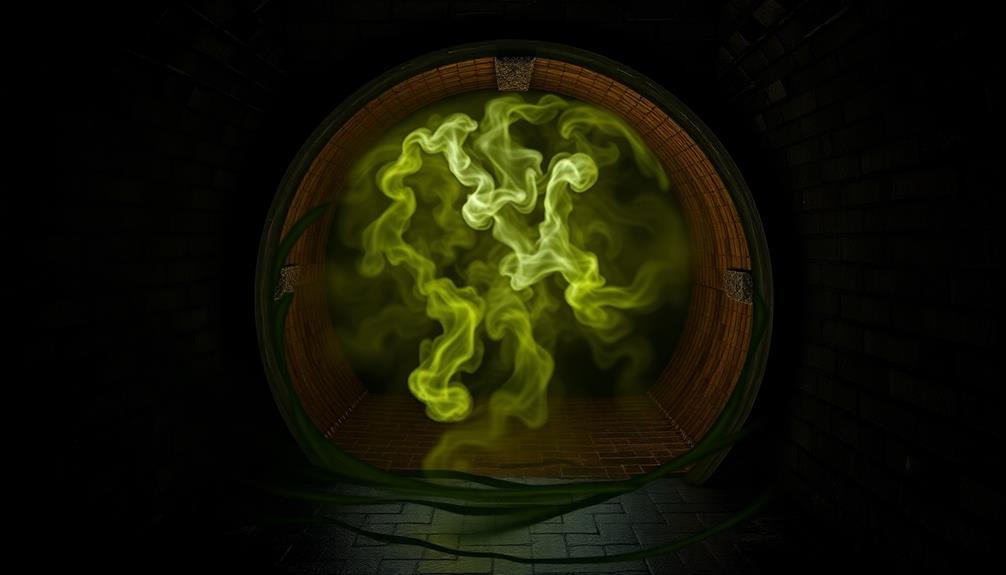Sewer gas smells really yucky, kind of like rotten eggs! This awful scent comes from broken-down waste in pipes and can be really strong near toilets and drains. If you notice this smell in your home, it's a sign of plumbing problems that need fixing right away. It's important to pay attention because that rotten egg smell could mean there's something more serious happening. We definitely don't want you feeling dizzy or sick! So, if you've experienced this unpleasant odor, stick around to learn how to tackle it and keep your home safe and fresh!
Key Takeaways
- Sewer gas has a strong, noxious odor that resembles rotten eggs, primarily due to hydrogen sulfide.
- The unpleasant smell is commonly found around drains, toilets, and sewer connections.
- Intensity of the odor can vary by location, with stronger smells indicating urgent plumbing issues.
- Lingering sewer gas odors can signal serious health risks and should not be ignored.
- Exposure to sewer gas can cause symptoms like dizziness, headaches, and respiratory irritation.
Introduction
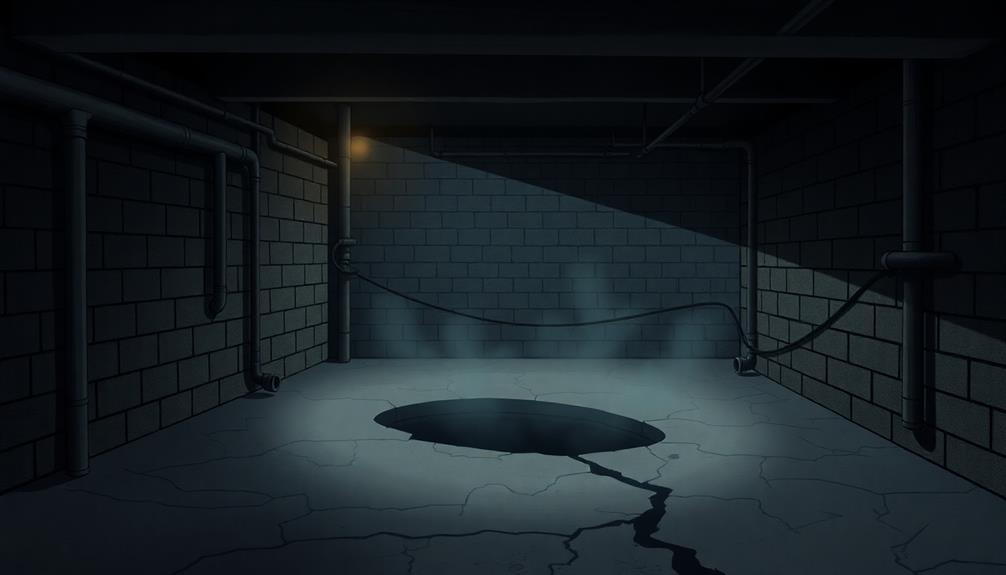
Sewer gas can be a troubling presence in your home, often signaling underlying plumbing issues. You might notice a strange smell that resembles rotten eggs. This odor comes from hydrogen sulfide, a gas that can escape from your drains or sewer line when there's a problem. If you catch a whiff of this foul odor, it's important to pay attention.
While small amounts of sewer gas mightn't be dangerous, persistent odors can lead to serious health risks. Prolonged exposure can cause headaches, dizziness, and even respiratory irritation. You might find that the smell is stronger near toilets, drains, or areas connected to the sewer line, which indicates that gas is sneaking into your living space.
Don't ignore these signs! Recognizing the smell of sewer gas can help you take action before things get worse. If you notice the odor hanging around, it's time to investigate further.
Understanding sewer gas and its potential dangers keeps you and your family safe. Remember, a little attention can go a long way in preventing plumbing disasters and keeping your home fresh and healthy!
Description of the Smell

When you catch a whiff of sewer gas, it often hits you with a noxious odor that brings to mind rotten eggs. This strong sewer gas odor comes from hydrogen sulfide, a smelly gas that can really make your nose wrinkle!
The unpleasant odor can fill your home, especially around drains, toilets, or anywhere near plumbing systems. That sulfuric smell isn't just annoying; it's a sign of a sewer issue that you shouldn't ignore.
You might notice the smell of sewer gas is more intense in certain areas, making it hard to breathe comfortably. Even a tiny bit of this gas can create an uncomfortable atmosphere, leading to a lot of concern.
If the smell lingers, it's usually a sign of plumbing problems that need fixing right away. Ignoring this can lead to health risks, which is something no one wants!
Source and Composition

The foul odor you experience is a result of various gases produced during the breakdown of organic materials in wastewater. This smelly mix, known as sewer gas, has a few key components. The source of the smell comes mainly from hydrogen sulfide, which gives off that distinctive rotten egg smell.
Methane is another part of sewer gas, but it's odorless on its own! To help you detect it, a scent called mercaptan is added, making it easier to notice.
Sewer gas also contains ammonia and carbon dioxide, creating a composition that can be quite unpleasant. You might find these smells wafting into your home due to plumbing issues like dry traps, cracked pipes, or damaged seals.
When these problems occur, the noxious odors can escape and fill your living space.
It's important to remember that while low levels of hydrogen sulfide are usually harmless, high concentrations can be dangerous. Plus, methane is flammable, so it's best to address any plumbing issues quickly.
Keeping your plumbing in good shape helps keep those nasty sewer gas smells away!
Typical Scenarios or Environments
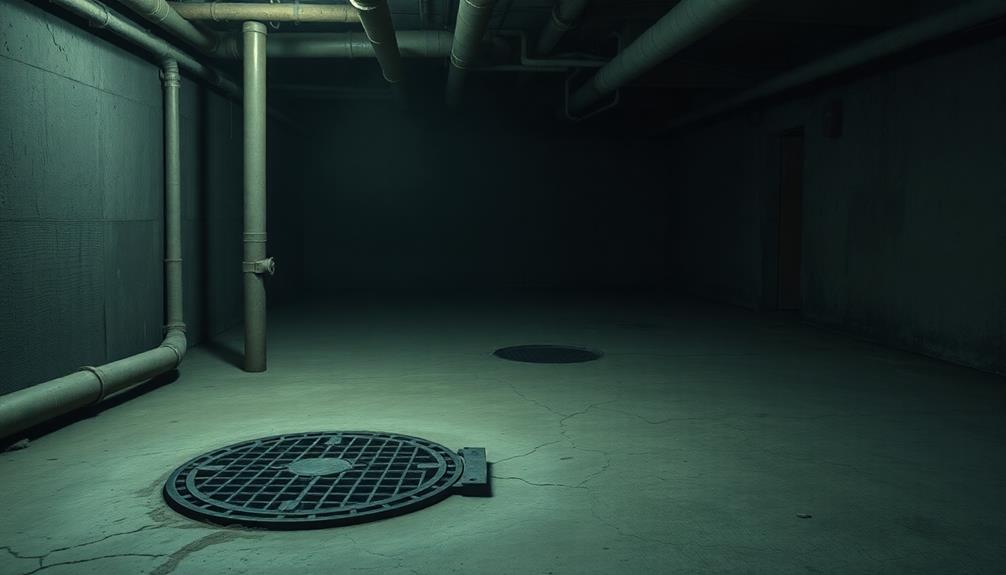
Often, sewer gas odors are most noticeable in areas with poor ventilation, like basements or bathrooms. When you catch a whiff of that strong, rotten eggs smell, it's usually a sign that something's not right. Infrequently used drains can also be culprits. If the water traps in those drains dry out, sewer gas can escape, creating unpleasant odors.
Homes near sewage treatment plants or older sewer systems might smell these household odors more often due to leaks or broken sewer vents. If you notice that sewer gas smell hanging around, it's essential to check for plumbing issues. Damaged pipes can allow those nasty gases to seep into your living space, and ignoring it won't make it go away!
Regularly checking your plumbing system can help you catch these problems early. Make sure your drains are used often, and keep an eye out for any signs of trouble.
Emotional or Cultural Associations
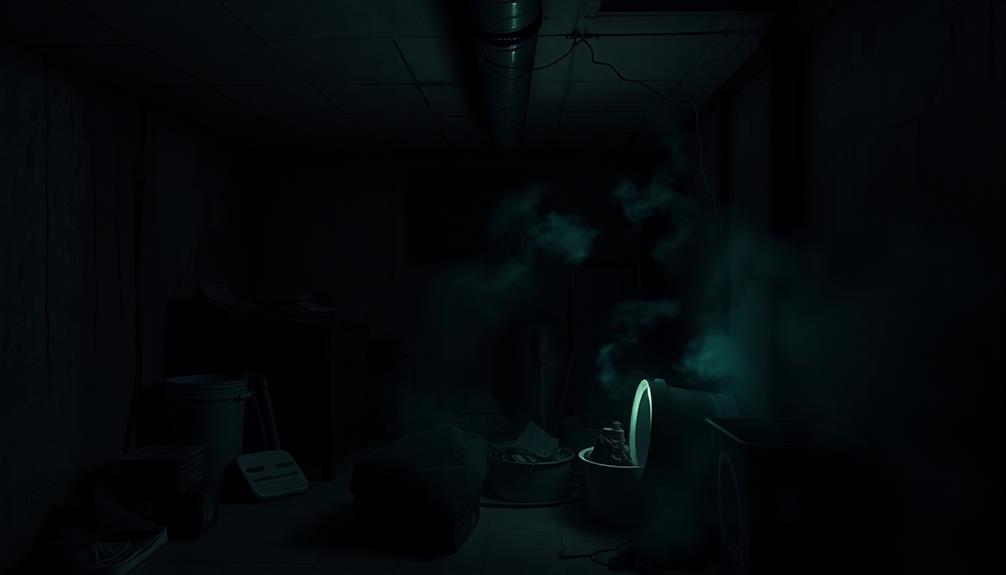
Noticing the smell of sewer gas can trigger immediate discomfort, often leading you to associate it with unsanitary conditions. You might describe it as a rotten egg odor, which makes your nose wrinkle and your stomach turn. The distinct scent is primarily due to the presence of hydrogen sulfide, which is a natural component of decaying organic matter. While sewer gas can be a nuisance, it’s important to remember that it’s one of the more common gas leak smells you might encounter. If the odor persists or intensifies, it could indicate a more serious issue that requires immediate attention from a professional to ensure safety.
This foul smell can stir up an emotional response, reminding you of health risks and danger lurking nearby. Culturally, odors like sewer gas can create community stigma, making certain neighborhoods feel neglected or decayed.
In literature or art, this unpleasant smell often symbolizes moral corruption, hinting at hidden dangers beneath the surface of society. It's fascinating how our instinctive aversion to sewer gas connects to a biological survival mechanism, alerting you to potentially harmful substances.
Many cultures even have traditional practices to cleanse spaces of foul odors. They might use sweet-smelling herbs or rituals to drive away the stench, reflecting a broader desire to keep their environments safe and pleasant.
Health or Safety Considerations
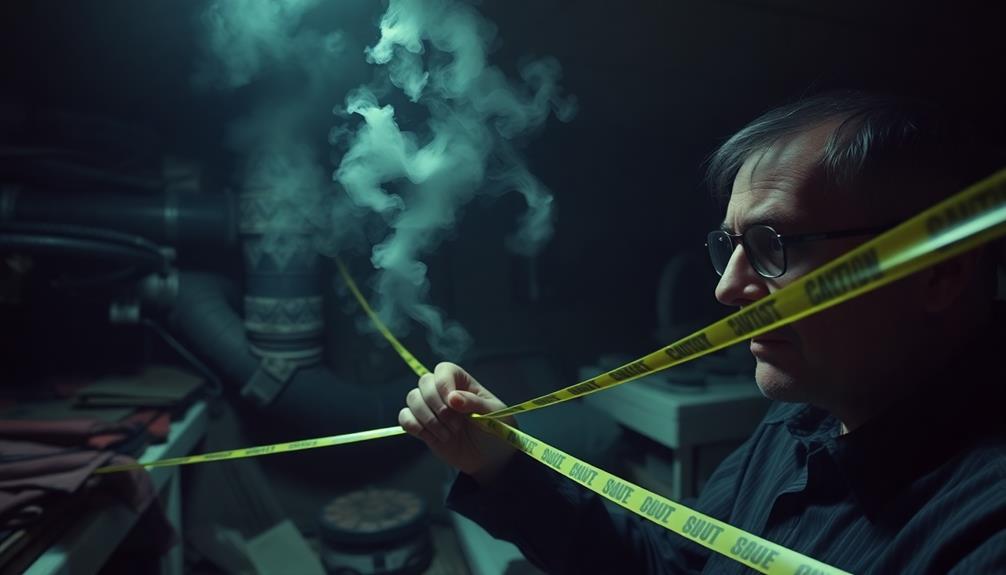
Sewer gas isn't just unpleasant; it can pose significant health risks if you're exposed for too long. The smelly mixture includes harmful gases like hydrogen sulfide and ammonia, which can lead to serious health issues.
If you breathe in these gases, you might feel dizzy, have headaches, or even feel nauseous. That's because they can cause respiratory irritation, making it hard to breathe.
Hydrogen sulfide is especially dangerous; high levels can lead to organ damage or even be life-threatening. You mightn't think much about ammonia, but it can irritate and burn your eyes, nose, and throat, affecting kids and the elderly even more.
There's also a flammability risk with methane, which isn't toxic by itself but can be dangerous when mixed with ammonia or in high amounts.
That's why, if you ever smell sewer gas, you should take it seriously! It could mean there's a plumbing issue that needs fixing.
Final Thoughts
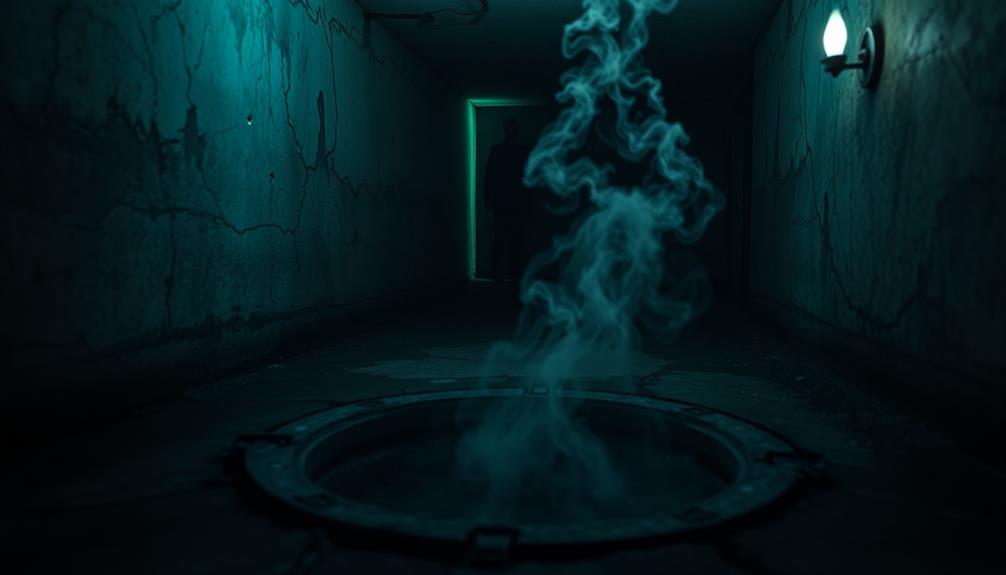
Recognizing the smell of sewer gas is crucial, as it serves as a warning sign of underlying plumbing issues that need immediate attention.
If you catch a whiff of that rotten-egg smell, it's time to take action! This foul odor can mean there are problems like broken sewer lines or a dry trap, which can lead to serious health risks if not addressed.
While small amounts of sewer gas mightn't be an immediate danger, prolonged exposure can make you feel dizzy or even nauseous.
If you notice the odor getting stronger, you should try to identify the source. Check your vent pipe or any areas where plumbing issues might be hiding.
Frequently Asked Questions
How Do I Know if I Have Sewer Gas Smell?
You can tell if you have a sewer gas smell by noticing a persistent foul odor around drains or toilets. Check for dry traps, broken vents, or cracked sewer lines to identify potential issues.
What Are the Symptoms of Sewer Gas Poisoning?
If you're exposed to sewer gas, you might feel headaches, dizziness, or nausea initially. Prolonged exposure can irritate your eyes and respiratory system, leading to severe symptoms like vomiting or difficulty breathing. Stay alert!
Is Sewer Gas Harmful to Breathe?
Yes, sewer gas is harmful to breathe. If you inhale it, you might experience headaches, dizziness, or respiratory issues. In high concentrations, it can even lead to serious health risks, so be cautious.
Does Sewer Gas Smell Like Natural Gas?
Sewer gas doesn't smell like natural gas. It has a foul, sulfuric odor, reminiscent of rotten eggs, while natural gas has a lighter, musky scent. Knowing the difference can help you identify potential hazards.
